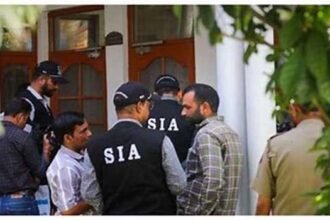The Ministry of Home Affairs (MHA) has announced the launch of the second phase of ‘Operation Shield,’ a comprehensive civil defence exercise scheduled for May 31, 2025, at 5:00 PM. This large-scale drill will be conducted across all districts adjoining India’s western border, specifically involving the states and union territories of Jammu & Kashmir, Punjab, Rajasthan, Gujarat, Haryana and Chandigarh. These regions have been identified as particularly sensitive due to their proximity to the border and the heightened risk of cross-border threats.
The primary objective of Operation Shield is to rigorously assess and strengthen the nation’s preparedness against a spectrum of hostile threats, including air raids, drone and missile attacks, and mass casualty situations. The impetus for this exercise comes on the heels of the first phase conducted on May 7, which exposed several gaps in emergency response mechanisms. In response to these findings, the MHA invoked emergency powers and mobilized resources through the State Disaster Response Fund (SDRF) to address the shortcomings. The urgency of the exercise has been further underscored by recent security incidents, such as the April 22 terrorist attack in Pahalgam, which highlighted the need for robust civil defence systems.
A key feature of the upcoming exercise will be the silent recall of Civil Defence Wardens and volunteers. These individuals, supported by youth organizations like the National Cadet Corps (NCC), National Service Scheme (NSS), Nehru Yuva Kendra Sangathan (NYKS) and Bharat Scouts & Guides, will be mobilized to participate in and support various civil defence measures. The drill will simulate a range of high-stakes emergency scenarios, including air raids by enemy aircraft, missile and drone attacks, and a mock drone strike on a military station. This particular scenario will require the evacuation of 20 civilian “victims” to safer locations, testing both the speed and efficiency of the response teams.
Another significant component of the exercise will be the implementation of complete blackout measures in sensitive civilian areas, with exceptions made for critical services such as hospitals, fire stations, and police stations. This will test the ability of both civilians and local authorities to respond effectively to wartime conditions, including restricted movement and limited visibility. To ensure effective communication and coordination during the drill, hotlines between Air Force and Civil Defence control rooms will be activated and centrally operated air raid sirens will be used to signal different stages of the exercise.
The operation will also focus on rear area security, simulating the deployment of Border Wing Home Guards in coordination with Indian Army units. Mass casualty management will be a major aspect, involving the mobilization of medical teams and the provision of 30 units of blood for the injured, further testing the medical response infrastructure. Evacuation drills and the transportation of simulated casualties will be carried out to assess the readiness of emergency services.
Residents in the participating districts are being advised to stay calm, follow official instructions, and refrain from panic during the exercise, especially when sirens sound or blackout procedures are implemented. Local administrations, police and disaster management authorities have been instructed to ensure meticulous planning and seamless coordination for the successful execution of the drill. After the exercise, all participating districts are required to submit detailed action taken reports to the MHA, which will be used to review performance and identify further areas for improvement.
Operation Shield represents a significant step in India’s ongoing efforts to enhance civil defence preparedness in border regions. The MHA has indicated that such exercises may become a regular feature, reflecting a proactive approach to national security and public safety. The collaboration between civil defence forces, local administrations, youth organizations and the armed forces highlights the importance of community participation and inter-agency cooperation in addressing modern security challenges. In summary, Operation Shield is a vital initiative designed to test and improve India’s readiness for a range of emergency scenarios, ensuring that the nation is better equipped to protect its citizens and maintain security in times of crisis.







